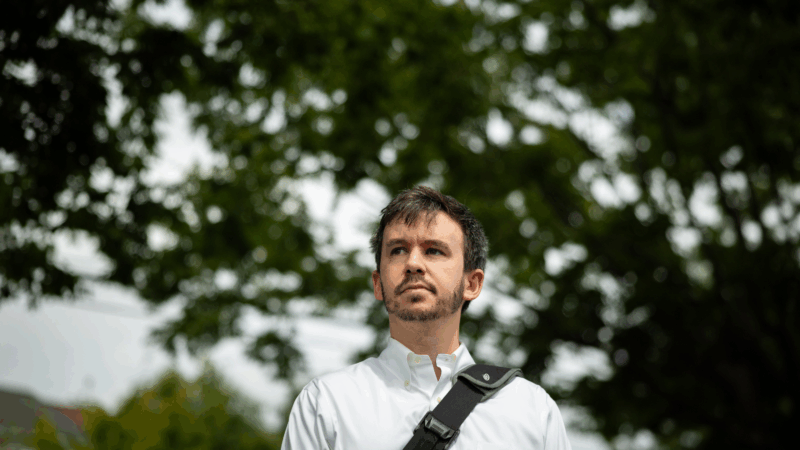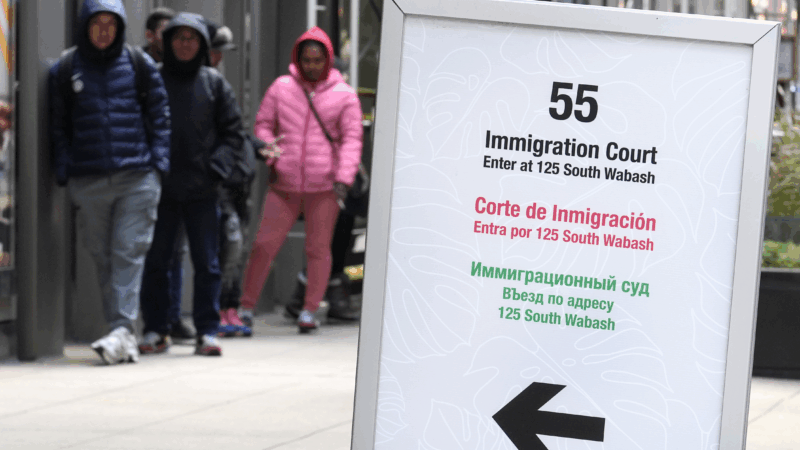Crime is down in Washington, D.C., but still a reality in some neighborhoods
WASHINGTON — President Trump began to deploy National Guard troops, along with hundreds of federal agents, around Washington, D.C., this week, in a move to crack down on what he calls rampant, violent crime. The federal government has also taken over the D.C. Metropolitan police.
Some Washingtonians see the president’s move as a power play. Others say crime in parts of Washington is indeed a big problem and they welcome more resources, but they doubt deploying federal agents and soldiers is a solution.
Ava, a business consultant, lives in the U-Street neighborhood, a gentrifying part of the capital where there is a mix of younger professionals and older, long-time Washingtonians. The neighborhood is part of Ward 1, which has had seven homicides and 166 robberies so far this year, according to D.C. Metropolitan police.
Ava, who asked that NPR not use her last name because she is here on a green card and worries about retribution, says there have been shootings nearby, but she still sees her neighborhood as relatively safe and is comfortable walking home as late as 2 and 3 a.m. She says the president’s description of Washington does not match her reality.
“I’ve lived in cities my whole life, and I don’t think D.C. is more dangerous than other cities,” says Shen, 27. “I think this summer actually has been … calmer than other summers.”
Washington has had some serious violent crime problems, including carjackings. For instance, in June 2023, amid a crime surge, there were 140 in the city.
But the U.S. Justice Department says last year violent crime in the District of Columbia hit a 30-year low.
Violent crime in Ward 1 is down nearly 30 percent this year so far over the same period last year, according to police.
Across the Anacostia River in Ward 8, where poverty is high, there have been 38 homicides so far this year – nearly five times as in Ward 1.
“I have a friend that actually got raped about three years ago,” says Alicia Cooper, who works as a property manager in the Congress Heights neighborhood. Cooper supports President Trump.
“I think he actually cares,” she says. On balance, she welcomes federal oversight of the police and a National Guard presence.
“The positive is a sense of security,” she says. “Residents, at the end of the day, they can feel secure that they know there is a higher level of chain command that is monitoring what’s going on.”
Joe McLean, 37, a lawyer who was visiting Congress Heights Wednesday, says the deployment of soldiers and federal agents is not about reducing crime, but flexing political power.
“Everybody knows that a show of force does not reduce crime, they don’t care about crime, and crime is down,” McLean says.
Instead, he says, he thinks the administration is trying to subjugate a majority-Black city.
“They see someone and they want to control them,” McLean says.


Lindsey Vonn says she suffered ‘complex tibia fracture’ in her Olympic downhill crash
The 41-year-old star said her torn ACL was not a factor in her crash. "While yesterday did not end the way I had hoped, and despite the intense physical pain it caused, I have no regrets," she wrote.
Guerilla Toss embrace the ‘weird’ on new album
On You're Weird Now, the band leans into difference with help from producer Stephen Malkmus.
Nancy Guthrie search enters its second week as a purported deadline looms
"This is very valuable to us, and we will pay," Savannah Guthrie said in a new video message, seeking to communicate with people who say they're holding her mother.
Immigration courts fast-track hearings for Somali asylum claims
Their lawyers fear the notices are merely the first step toward the removal without due process of Somali asylum applicants in the country.
Ilia Malinin’s Olympic backflip made history. But he’s not the first to do it
U.S. figure skating phenom Ilia Malinin did a backflip in his Olympic debut, and another the next day. The controversial move was banned from competition for decades until 2024.
‘Dizzy’ author recounts a decade of being marooned by chronic illness
Rachel Weaver worked for the Forest Service in Alaska where she scaled towering trees to study nature. But in 2006, she woke up and felt like she was being spun in a hurricane. Her memoir is Dizzy.






